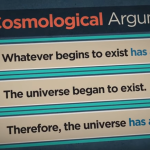Why Natural Law Ethics is Rational
by Dr. Dennis Bonnette
Filed under Morality

This article will lay out the rational foundations of natural law ethics as well as show how they lead to implications for the philosophical science of ethics.
Everyone thinks he is an expert in ethics – or, so it seems. Just ask anyone’s opinion about any hot topic, like abortion, the homosexual agenda, the proper response to climate change, or the death penalty, and you will elicit strong judgments as to what we are obliged to do or not do. Rarely does someone say, “Who am I to judge?”
Still, depending on one’s world view, very different responses to such issues tend to follow. Those who hold that the God of classical theism exists and that man has a spiritual and immortal soul tend to hold radically diverse views from atheists, who hold man is simply the end product of material evolution.
That is why arguments about the ethical inferences of such divergent views tend, at best, to result in a respectful agreement to disagree.
It goes without saying that, if the God of classical theism does not exist, or if there is no unchanging essential human nature or spiritual afterlife, then natural law ethics is mere fantasy. On the other hand, mankind’s universal sense of conscience and compulsion to do good and avoid evil, combined with recognition that some acts are so heinous that history itself offers universal condemnation, such as the Holocaust, make some purely evolutionary explanations appear superficial.
Nonetheless, having already published articles on Strange Notions that demonstrate the existence of God and the immortality of the human soul, I hope now to show how natural law ethics, as taught by St. Thomas Aquinas, can be successfully built upon such a body of truths.
Given its necessarily short treatment here, this piece is, at best, but a scanty outline of natural law’s rational basis and essential structure.
Eternal and Natural Law
St. Thomas Aquinas defines law in general as “… an ordinance of reason for the common good, promulgated by him who has care of the community.”1 Since he maintains that “… a law is something pertaining to reason,”2 the natural law always pertains to the “order of reason.” It is not based on supernatural revelation.
Since God has care of all creation, St. Thomas’s definition of eternal law is “… the plan of divine wisdom in as much as it is directive of all acts and motions.”3 God implements his eternally-known plan for creatures quite naturally, that is, through the natures of things themselves. For, what is more natural to a thing than to act in accordance with its own nature?
For physical things, God is the supreme designer of the natural physical law. Physical creatures follow God’s directive insofar as each thing must operate according to its own physical nature. Thus sodium must act as its nature directs, when it combines with chlorine to form salt. No one would suggest that a natural body could somehow choose to ignore its own nature and behave like something else. So, too, is the case with all living creatures less than human beings, since, lacking free wills, their behavior is determined completely by their natures – and their natures are the result of God’s eternal plan of creation.
Thus, the central insight of natural law is that it operates in and through a creature’s very nature, where the nature is the essence of the thing viewed from the perspective of what governs all its activities. Natural law is promulgated in virtue of its being the very principle of operation in every creature. It need not be known by the creature, since natural law automatically dictates how the creature exists and operates. Still, while non-rational creatures do share natural law in a secondary sense, natural law is primarily understood as the rational creature’s participation in the eternal law.
Man's Last End: Union with God
When it comes to the rational creature, which is man, his possession of reason and free will distinguishes his participation in natural law from that of non-intelligent creatures. This does not mean that human beings’ non-free activities are so distinguished, but that the concept of specifically human acts is restricted to those over which we have deliberate control.
Thus, our bodies are subjected to the same physical law of gravity as all non-rational bodies, so that falling from a height would be considered the act of a human, but not a specifically human act. So, too, is the case with our physically-determined biological processes. But, a deliberate choice, say, to accept a bribe – since it is under rational and free control, would be viewed as a specifically human act.
For the science of ethics, human natural law pertains solely to such freely chosen actions.
Since there is no room here for a complete treatise on natural law, I will limit my remarks to those most pertinent to man’s ethical situation. In fact, it does not concern us whether non-human agents universally exhibit final causality, since what is evident is that humans exhibit direct and deliberate actions for ends they understand and freely choose.
We actively seek ends we find fitting to our natural desires, which is why we call them “good.”4 St. Thomas spends the first sixty-three chapters of Book III of the Summa Contra Gentiles showing that no finite good can completely satisfy the human appetite, since (1) we can always conceive a more perfect good, and (2) even the most perfect goods in this life will be lost at death. Man is never completely happy until and unless (1) there is no greater good to be attained, and (2) the good attained can never be taken away from him.
Since philosophical psychology demonstrates that man has a spiritual and immortal soul, St. Thomas reasons that man’s true end cannot be fulfilled in this life, but only in the afterlife. Moreover, since all good things come from the Creator, God must not only have goodness as the cause of goodness in creatures, but, in light of the divine simplicity, must be Goodness itself. Since man is never satisfied as long as a greater good can be had, man’s last end must be God himself, who alone is infinite goodness.
From this, it follows that all man’s free actions should be directed toward, or certainly not opposed to, attaining God as his last end in the unending afterlife. Since the omnibenevolent God has given man his rational nature and last end, God’s own fidelity assures man that proper use of that rational nature will enable us to attain our last end, which is eternal union with the Supreme Good, which is God himself.
The Basis for Moral Obligation
But, man’s essence is to be a rational animal. Man differs from, and is superior to, lower animals by possession of reason. The proper use of reason is the measure of man’s perfection and fittingness to attain his last end. That is, God did not give us reason so as to act irrationally, but rationally. Otherwise, we become operationally a contradiction in terms: an irrational rational animal.
This extends to the use of our various natural powers, since reason dictates that they be used rationally. But the various powers are clearly understood by reason as ordered to certain ends. For example, the power of nutrition is aimed at bodily health through proper eating and drinking. Yet, eating too much or eating poison can damage our health, rendering the nutritional end of the act vitiated. The act of eating then becomes an anti-nutritional nutritional act, which is self-contradictory, and therefore contrary to rational use of the nutritive faculty.
Such behavior is irrational, and thus, contrary to man’s rational nature. Such behavior therefore leads man away from his true end, which renders such acts something we ought not do. It is a thrust away from the true nature of man. Since nature dictates the true being of man, deviating freely from our nature in this fashion is a thrust away from the fulfillment of our being: it is a thrust toward non-being. Thus, it results in a self-destructive act that leads us away from our true end or good.
We overcome the alleged is/ought dichotomy by seeing that immoral acts are committed under the penalty of self-destruction, which is something we should not chose, something we ought not do.
Just as a lame horse suffers physical evil because it lacks the fullness of its natural perfections as a horse, so, too, a man who freely rejects his natural inclination toward moral goodness suffers moral evil for which he is personally responsible.
Such self-destructive acts contradict the creative intention of God in giving us existence and the opportunity to reach our blessed last end. It is a metaphorical “slap in the face to God himself.” Natural law tells us that we are not simply “self-responsible,” as some claim, but rather are “responsible,” not merely to ourselves, but to God as the Supreme Lawgiver and Creator of our human rational natures.
Since reason tells us our immoral acts are contrary to our rational nature, and thus, to God’s creative intention, we properly feel guilt, shame, and a realization that we have done something we ought not to do – something that violates the God-given gifts of our existence and rationality.
Without formal realization of the obligation imposed by natural law, all men naturally understand the obligation to do good and avoid evil. They also see to some degree the need to do things that are fitting to their nature. This natural internal compulsion manifests the existence of the natural law in an imperfect way.
Full recognition of natural law is had only by those who also realize that this internal compulsion arises because God exists to impose our nature and its natural ends upon us.
In general, human acts can be understood as morally evil if they entail either a misuse of some natural faculty or the violation of the rights of ourselves or of others. A proper understanding of our powers entails understanding their intrinsic finalities. Thus speech is the means by which truth in my mind is conveyed to another. Lying contravenes that purpose, making communication anti-communicative, and thus, irrational, which, in turn, violates the rationality of our nature.
The violation of others’ rights is also seen as irrational, since rights flow from obligations which arise from human nature. For instance, since man must live to fully express God’s intention in creating him, to kill him is to violate his right to fulfill his obligation to live so as to reach his last end in God. Equally, suicide violates the right and obligation to maintain our own God-given lives. Without detailing the morality of every act, this is the sort of reasoning which the study of natural law entails.
Clearly, full exposition of all aspects of natural law and its application would require an entire course in ethics, which is impossible in this short paper. Hopefully, some of the above explanations will serve to render clearer the coherency of natural law ethics and its application to current ethical controversies.
Related Posts
Notes:
Note: Our goal is to cultivate serious and respectful dialogue. While it's OK to disagree—even encouraged!—any snarky, offensive, or off-topic comments will be deleted. Before commenting please read the Commenting Rules and Tips. If you're having trouble commenting, read the Commenting Instructions.












